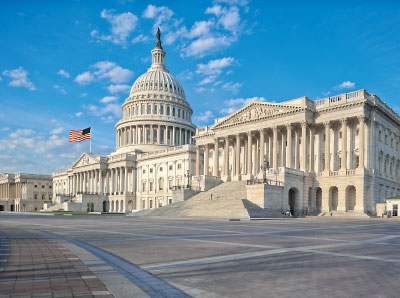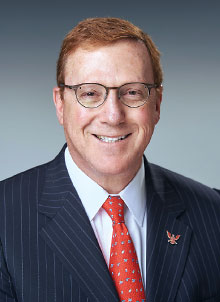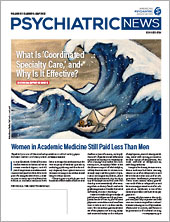In March, Congress passed a massive appropriations package that funds the federal government until the end of the fiscal year, includes $13.6 billion in emergency aid for Ukraine, and provides critical funding for mental health services.
Importantly, the package includes a five-month extension of several telehealth flexibilities that would otherwise end at the conclusion of the current public health emergency, which has been extended to July 15. Those flexibilities include waiving geographic site-of-service requirements, allowing audio-only telehealth services for Medicare beneficiaries, and delaying the requirement that Medicare patients have an in-person evaluation within six months of their first mental telehealth visit.
“Telehealth access to mental health services during the pandemic has been a lifeline that made it easier for patients to keep appointments and get the psychiatric care they need,” APA CEO and Medical Director Saul Levin, M.D., M.P.A., said in an APA media release. “That experience shows how important it is to continue telehealth access for patients not only this year, but permanently.”
The legislation also extends the Conrad 30 J-1 Visa Waiver Program through September 30. The program allows non-U.S. international medical graduates (IMGs) to remain in the country after completing their residencies, so long as they practice in rural and other medically underserved areas. According to Sen. Amy Klobuchar (D-Minn.), over the last 15 years the Conrad 30 program has brought more than 15,000 physicians to underserved areas. Klobuchar is one of the sponsors of the APA-supported Conrad State 30 and Physician Access Reauthorization Act (S 1810 and HR 3541).
“The Conrad 30 program not only eases administrative burdens for IMGs, it also boosts the health care workforce in areas of the country most in need,” Levin said. “Especially in light of the pandemic, it is essential that we do everything possible to bring well-trained physicians to our underserved communities.”
Additional APA-supported provisions in the package include the following:
•
$45 billion to the National Institutes of Health (NIH)—an increase of $2.25 billion over last fiscal year, including increases for the National Institute on Minority Health and Health Disparities ($68 million), National Institute on Drug Abuse ($115 million), National Institute of Mental Health ($87 million), and National Institute on Alcohol Abuse and Alcoholism ($18 million).
•
$6.5 billion to the Substance Abuse and Mental Health Services Administration (SAMHSA)—a $530 million increase over last fiscal year; $2 billion of these funds will be directed to mental health programs—an increase of $288 million over last year. This includes $102 million in additional resources for the implementation of the 988 hotline number and $42 million set aside to help communities improve related crisis care response and services.
•
$857 million for the Mental Health Block Grant—a $100 million increase over last fiscal year; 5% of each state’s block grant funds must be devoted to crisis services.
•
$10 million for the new Mental Health Crisis Response Partnership Pilot Program, which will help communities create or enhance mobile crisis response teams consisting of mental health responders and avoid unnecessary police response.
•
$17 million to the SAMHSA Minority Fellowship Program to promote and train behavioral health care professionals on how to provide culturally competent care. (APA is one of seven organizations that receive grants to participate in the program.)
•
$24 million to the Health Resources and Services Administration’s Substance Use Disorder (SUD) Treatment and Recovery Loan Repayment program to provide as much as $250,000 in loan repayments to psychiatrists and other SUD professionals who agree to work full time in a health professional shortage area or county with high overdose rates for up to six years.
•
$25 million to the Centers for Disease Control and Prevention and NIH to support research to identify the most effective ways to prevent firearm-related injuries and deaths and to broaden firearm injury data collection.
•
$5 million to the Employee Benefits Security Administration, which is responsible for enforcing compliance with the Mental Health Parity and Addiction Equity Act for 2.2 million employer-sponsored health plans.
•
Enhanced Medicaid funding for Puerto Rico and other U.S. territories extended through December 13.
“Congress’s continued investment in mental health remains essential as we navigate our emergence from COVID,” APA President Vivian Pender, M.D., said in the APA release. “This summer, as we implement the national 988 hotline for mental health, these funds will be a critical piece of a larger puzzle.” ■


